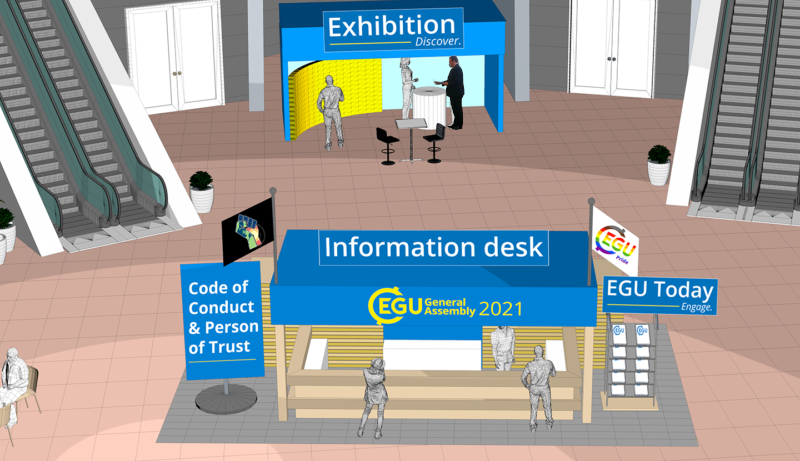#vEGU21 is over – What remains?
Published:
The virtual EGU21 is over. Although the conference was virtual last year, too, I would consider this to be the first fully virtual EGU conference. Last year, EGU — really not bad at all — was more like an emergency replacement at the beginning of the COVID-19 pandemic. This year, there was plenty of time to prepare the conference in a virtual format and it was really a great experience. Despite the little problems with the original vPICO platform, everything went very well in my opinion. There were many great short courses, general debates, and innumerable interesting contributions from scientists all around the world. Now, it's time for a recap and to think about the impact of #vEGU21.

For me, the most important question before the conference was: "How should we present our work?". Usually you are told that you either have to prepare a talk, a poster or a PICO presentation. But this year, it was possible to upload any kind of "display" material. After some disussion, we opted for slides plus a pre-recorded talk. During a "normal" conference you just see one person, that, however, often presents the work of several scientists. Therefore, we used this opportunity to not only let one person give the talk, but let everybody explain their contributions by themselves. The viewers can now see who was actually involved in our work and do not simply attribute all the work to the presenter alone. I believe that this is a very fair option. But at the same time I know that this is not really feasible in an offline conference.
Furthermore, it was the first time for me to create a scientific video. Until before the pandemic, I never thought that I might start a YouTube channel to upload a video. I already used Twitter, ResearchGate and other platforms, but YouTube? Well, it happened just before this years EGU conference that I uploaded my first scientific talk to YouTube. And I actually consider to start creating more content for this channel including more scientific talks — a couple of my talks during the last year have been recorded — and even content related to outreach. I just started to become interested in explaining my research to others, including non-scientists.
Outreach is something that I was already interested in before, but I never really started to do it. A few months ago I wrote a popular scientific article on my PhD thesis that I submitted for a competition. And I will certainly write more about this competition as soon as it is finished. No matter what the result is. However this article was the only outreach activity so far. I also got inspired by the interesting short courses on this topic during #vEGU21. So, maybe I will create more videos for YouTube, but first of all, I start with this blog.
These have been the most important personal impacts of #vEGU21. But what else remains? A virtual conference can save a lot of carbon dioxide, it allows scientists with family commitments or from remote countries to participate in the conference while beeing at home, and much more. A lot has been written on the advantages of a virtual format. But I felt that about every second talk or so ended with words like "... and I hope to see you in Vienna next year". Yes, I want to see you all in person in Vienna. I want to travel to Vienna and stay in a different environment for the conference. Beeing at a conference location that is not your home town helps a lot to focus on the conference and the contributions by the other scientists. There are so many possible distractions when you follow a talk in a video conference. A mail pops up, your children enter the room (when you're working at home), someone calls you on the phone, and more. In Vienna, it's easier to stay focused — at least for me.
There are many good things about a virtual conference, but there are also drawbacks. Of course, we currently do not have an option. During the pandemic, the virtual format is the only possibe format. And it's great that we have this option nowadays. We should keep the good things of both the virtual and the offline conferences. I could imagine that, as soon as the pandemic is over, most conferences return to an offline format. Especially, since so many of us really desire travelling to other places for a conference, but I really hope that there will be a lot of hybrid formats in the future.
